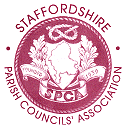What do councillors do?
- Represent their community
- Make a difference
- Represent interests of residents
Councillors are elected to the local council to represent their local community, so they must either live or work within a specified distance of the area.
Becoming a councillor is both a rewarding and privileged form of public service. You will be in a position to make a difference to the quality of other people’s daily lives and prospects.
Being an effective councillor requires both commitment and hard work. Councillors have to balance the needs and interests of residents, and the council. These will all make legitimate demands on a councillor’s time, on top of the demands and needs of their personal and professional lives.
Why become a Councillor?
There are many reasons why people decide to become a local councillor. They include:
- wanting to make a difference and be involved in shaping the future of the local community
- being concerned about your local area and wanting to ensure that the community gets the right services
- wanting to represent the views of local people and ensure that community interests are taken into account
- wanting to contribute your business or professional skills
- concerns about one particular issue
Are there any restrictions to being a Councillor?
You need to be:
- British or a citizen of the Commonwealth or European Union
- At least 18 years old
- Registered to vote in the area or have lived, worked or owned property there for at least 12 months before an election
You can’t be a councillor if you:
- Are the subject of a bankruptcy restrictions order or interim order
- Have been sentenced to prison for three months or more (including suspended sentences) during the 5 years before election day
- Have been convicted of a corrupt or illegal practice by an election court
Want to know more?
Why not read the Good Councillors Guide:
- hard copies are available from SPCA office (please note there is a charge for this)
- an electronic copy is available from the NALC website for affiliated councils (please contact us for the current Staffordshire password to access)
